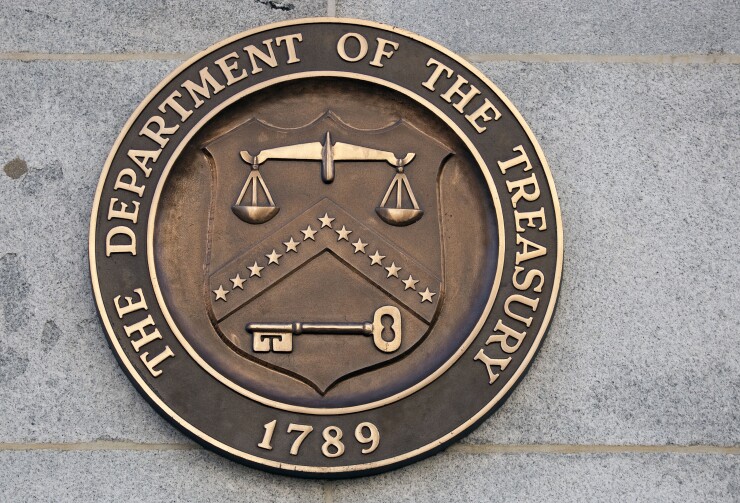Treasury and the Internal Revenue Service issued proposed regulations Tuesday to help taxpayers avoid adverse tax consequences from changing the terms of debt, derivatives, and other financial contracts to alternative reference rates from interbank offered rates such as Libor.
Libor, an acronym for the London Interbank Offered Rate, is being phased out at the recommendation of the Alternative Reference Rates Committee created by the U.S. Federal Reserve Board and the Federal Reserve Bank of New York.
The new alternative reference rates include the Secured Overnight Financing Rate (SOFR) published by the Federal Reserve Bank of New York and the Federal Funds Rate.

The proposed transition regulation addresses the possibility that such a modification of a debt instrument, derivative, or other financial contract could be a taxable transaction for federal income tax purposes or could result in other tax consequences.
“Without this critical guidance, market participants would face significant tax uncertainties in making necessary modifications to these contracts,” Treasury said.
The Treasury-IRS action comes on the heels of a similar announcement last month by the Governmental Accounting Standards Board of proposed new accounting and financial reporting guidance to assist state and local governments in the transition away from Libor.
Treasury Secretary Steven Mnuchin said in a press statement, “A smooth and successful transition away from Libor and towards an alternative rate, such as SOFR, is important for the stability of global financial markets. These proposed regulations provide certainty and clarity to taxpayers as they make the critical transition away from Libor.”
The GASB exposure draft, Replacement of Interbank Offered Rates, proposes removal of all interbank offered rates as an appropriate benchmark interest rate effective for reporting periods beginning after Dec. 15, 2020.
Both the Treasury and GASB proposals were broadened beyond beyond the Libor to include all other IBORs offered in other countries, including Switzerland, Japan and the European Union.
The Treasury and IRS proposal are scheduled for publication in the





